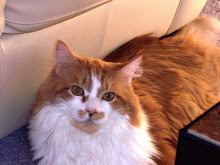On the red eye home Thursday night, I was curled up against the airplane window, dreaming of the Kardashians again, when all of the sudden, the flight attendant made this announcement:
"If there are any doctors, RNs, EMTs, or paramedics on-board, can you please ring your call light?"
I groggily woke up, looked at the BF and thought to myself, do I REALLY want to claim my profession at 3 in the morning on a plane? Unfortunately (or maybe fortunately), my sense of duty won out and I sleepily reached for the call light. The little red light flashed and suddenly a flight attendant appeared at our side. She said that a girl had passed out in the back of the plane and asked if I'd go take a look at her.
I made my way out to the aisle, hair a mess, with bad breath, and without my shoes, and walked briskly towards the back of the plane. A young girl was sitting on the floor, surrounded by a couple of flight attendants and very concerned passengers. As I knelt down to talk to her, one of the flight attendants asked, "Are you a nurse?"
Ok, now, one of my pet peeves is when people ask me if I'm a nurse. This is not because I think it is a bad thing to be a nurse or because I don't think nurses do a very difficult and noble job. Actually, I could NEVER be a nurse and I have a ton of respect for most of them. What irritates me about that question is that the only reason people ask it is because I am female. If I were a man responding to the flight attendants call, I would NEVER have been asked if I were a nurse - it would have been automatically assumed I was a doctor. And, even worse was the fact that a FEMALE asked me that!!!! It makes my blood boil.
But, I digress. On with the story...
I grudgingly replied, "No, I'm a DOCTOR," in my firmest voice.
Apparently, the girl had been making her way back from the bathroom, became lightheaded, and blacked out. The flight attendants had provided her with oxygen and some ice to cool her down. By the time I got to her, she was awake and coherent.
Unfortunately, there's very little I can do without some equipment when it comes to syncope. Luckily, the flight attendants were able to provide me with the crappiest stethoscope and blood pressure cuff known to man (or woman). We were right over the wing of the plane - the loudest part - and I couldn't hear a thing. In fact, I was wondering if maybe she was dead. But, since she had a pulse and was talking to me, I figured that wasn't the case.
As I was assessing passenger #1, another passenger began to feel lighheaded and said, "everything is getting very dark!!!"
Now, I'm thinking, "Oh god, we're gonna have an epidemic right here on flight 734. YIKES!"
Because passenger #1 had actually passed out, I focused my attention and energy on her. I asked her more questions, in an attempt to get a history, and silently swore to myself that I didn't have better physical exam skills. Typically, syncopal patients get a head CT, EKG, telemetry monitoring, blood work, accuchecks etc and about 40% of the time we never find out why people are syncopal. But, without those things, it's difficult for me to rule out hypoglycemia, stroke, arrhythmia, et cetera. So, the best I could do was get a decent history, examine her minimally, and reassure her that she was likely just orthostatic (dehydrated) and maybe hypoglycemic.
In the meantime, passenger #2 puked her guts out in a puke bag and suddenly felt all better. AKA - she was freaking out secondary to passenger #1 fainting.
I stayed back there with the two of them until we could get passenger #1 back into a seat. After a couple glasses of water, some orange juice, and cool air, passenger #1 began to feel better and her color gradually returned back to normal. Once I felt assured that she was going to be ok, filled out some paperwork, and encouraged the flight attendants to be sure paramedics met the plane when we landed, I made my way back to my seat.
When we landed, the paramedics filed on to the plane and walked both girls off to the emergency room, where they undoubtedly spent four to five hours laying on an uncomfortable ER bed and likely being sent home without any new information or diagnoses.
Most of my drive home that morning, I wondered what I would have done if the situation had been more serious. What if it were a cardiac arrest or a stroke? What am I supposed to do on a plane, without diagnostic tools, drugs, and other therapies? Yikes. What I did decide is that I will respond again if the flight attendants ever ask, "Is there a doctor on the plane?"



